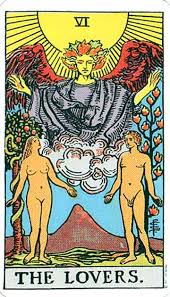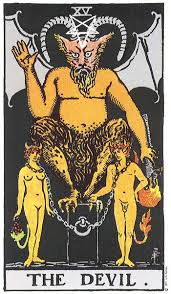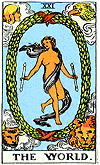Tarot, Psychology and Relationships
Jenne Perlstein
March 2016
As Tarot consultants, and clients, we see and hear the idealism, romantic hopes and anguish about (the) ‘relationship’. The cards may reveal many facets about the situation, and as the Tarot consultant we try to interpret, guide and counsel in response to the eternal questions from clients:
Does he love me?
Will he come back to me?
Will I get married?
Is there someone new on the horizon?
I know we are meant to be together, but when’s it going to happen!??
Is she having an affair?
Why don’t my relationships ever work out?
Why can’t I get over him?
Tarot consultants, ask:
Why are they so obsessed?
Can’t they see the relationship is over?
Can’t they see he/she is no good for them?
Why do they keep having these difficult relationships?
Can’t they take some responsibility?
Why do they keep coming back looking for magic answers, from me?…
With these questions and dilemmas in mind, I have focussed on these areas for many years in my Tarot and counselling work, building knowledge, further experience, delivering workshops and talks to colleagues, attempting to develop greater skills for myself and others in this sometimes vexed area. As part of my passion for Tarot and its links to counselling and psychology, I attended the Readers Studio – Tarot and Psychology Conference in New York in April 2014, which is one of the largest Tarot conferences in the world. It was inspiring to be surrounded by Tarot readers/consultants in the same field of interest, and to receive profound learning from wise teacher’s, psychologists, therapists, counsellors who work with Tarot. Little did I know then, that I would be presenting a workshop at the Tarot and Psychology Conference in New York April 28th 2016, this year on the Psychology of Relationships in Tarot. http://www.Tarotschool.com/RS15/index.html
In the presentation, I am using the questions I have posed about relationships, with the cards of the Lovers, the Devil, the 6 Cups and the Moon as a focus to examine the key areas of psychological attachment, parent- child relationship and family of origin, (the Moon, 6 Cups) as the starting point. Attachment is the beginning of the parent -child bond, and the essential start of self-worth, resilience, healthy self-love & separation from parents, and boundary setting. (Empress, Moon). ‘Children attach not merely for food but for physical & emotional intimacy’. Scofield. This is the core of ‘good enough’ parenting.
Secure attachment can go ‘wrong’ due to often poor nurturance from parent to child, and lead to anxious (9 Swords), ambivalent, (Hanged Man), avoidant,( Fool) disorganised, even abusive (Devil, Tower) attachment styles in adults. Those who are anxious can become dependent in their relationships, or those with avoidant attachment style can have relationships, but are highly defensive and often repress emotion or create dynamics to avoid commitment; some fluctuate between anxiety and avoidance, but underneath craving the nurturance they didn’t receive as children. Many may develop addictions e.g. alcoholism, pornography, sex addiction or ‘work- aholism’, adding to the burden of dysfunctional relationships. (Hanged Man -sacrifice, Devil -compulsion, 9 Cups- complacency/avoidance).
Drawing out the connection between parent /child relationship and adult relationship intimacy issues is the crux of working with Tarot clients in trying to answer the eternal relationship questions mentioned earlier. ‘Research has been able to confirm that our adult relationships are shaped by our early patterns of attachment and with the ways of dealing with closeness, separation and love’ (Schneider, Gruman & Coutts, 2005). ‘Adult relationships re- awaken unfinished business & patterns from the first bonding situation with the carer/ parent’. (Greene)
In the workshop at the conference, I will be looking specifically at co – dependent and obsessive relationships commonly seen in Tarot consultations, portrayed by the Lovers, the Devil and the Hanged Man with the latter’s self-sacrifice, martyrdom and idealism. Co-dependency is defined as: ‘Person with unmet nurturing needs in childhood, seeks a ‘parent ‘in adult relationships. Conversely a person who wants to ‘mother’/control/rescue/be responsible, seeks a needy/irresponsible ‘child’ ( D. Cunningham). Lovers move from ‘infatuation’ in the Devil (Passion) stage of romance to a, hopefully, more adult and equal relationship of the Lovers, communing with Divine guidance and in touch with their individuality and meeting the needs of their own inner child. But the Devil looms large and many couples remain in this state of co-dependency or are never actually ‘in’ the relationship in reality, only via their fantasy, perception and obsession. Often there has been poor modelling of a healthy ‘marriage ‘from the parents. People thus ‘seek to try to unconsciously/ compulsively regain the blissful connection, the unattainable ‘original’ feeling, and the oneness with mother/caregiver’. (Greene).
The presentation will include Tarot spreads, developed by me, based on psychological approaches discussed in the presentation e.g. (Transactional Analysis) Parent –Adult – Child PAC Spread© Jenne Perlstein 2016 which looks at the core of the interactions between all of us, with the Parent- Child dominating in co-dependent and obsessive relationships, rather than Adult to Adult relationships (Temperance).) Used with Tarot, this is a powerful tool to analyse a client’s current relationship, as well as patterns or tendencies in relationship styles, and thus offer insight into why they keep attracting the same type of relationship over and over (9 wands) and ways to change this, by the healing of their inner child wounds. This is not an easy path (Death) and many will choose not to take it.This is where acceptance, on our part, of where the client is at, is crucial. Some may not wish to go beyond the ‘who/when is the next romantic lover round the corner?’ and choosing to continue on the ‘merry go round’ of the Devils’ obsession and co-dependency and the Inner child’s (Moon, Page of Cups) craving for love. The client isn’t willing to take the steps to actually gain self-love. (The Star, Temperance)
The Iceberg ‘psyche’ Spread (©Jenne Perlstein 2016) uses Freud’s ground-breaking work to look at the unconscious (Id), Inner child (Id/Ego) and parental (Superego) voices, so often deeply embedded in our psyche’s. Not accessible by ‘the thinking/memory mind’, rather evidenced by our behaviours, feeling ‘in love’, and in our bodies, this spread brings the unconscious to the surface. It can add to the readers abilities to understand the underlying motivations of clients relationship issues; give the reader enhanced skills in applying the psychology of relationships with clients, and to have greater boundary setting and referral ability, as well as offering some steps for the client to take to begin to resolve their dysfunctional relationship patterns. This may involve your own skills and wisdom, but referral may also be an outcome. E.g. today, as I write this, I referred a woman client urgently to Domestic Violence Services, http://www.safesteps.org.au/ recommending she take her children, seated in my hallway, and herself, to her parents’ home and contact Safe Steps immediately, as I believe she was in a volatile, co-dependent, controlling relationship, where violence was escalating.
The other area I touch upon is the likely awakening and triggering of one’s OWN patterns of parent /child and adult romantic relationships, by undertaking this workshop or exploring these issues. A key point here is that children need ‘good’ enough parenting- basically empathy, nurturance and individual respect from parents, not perfection. We all need to examine our own inner child issues to have healthy ‘adult’ romantic relationships, an ongoing at times painful and challenging process. Ultimately expressed as the Lovers and The World, with their integration and resolution.
The workshop will be recorded and hopefully available for you to listen to via the Tarot School. http://www.Tarotschool.com/RS15/index.html .This article is a taste of it, and I hope to present it at the Tarot Guild Australia in Victoria later in 2016. The cards I mention are ones that reflect an aspect of the dynamic or energy I have discussed and are not exhaustive. Part of the creativity of the workshop process is to see what cards and combinations can capture the issues/problems and some actions to enable healing.
(Rev) Jenne Perlstein MBBS (Medical Degree), BSW (Social Work) AASW (Advanced Accredited), Cert IV TAE, Prof Member Tarot Guild Australia, Cert Appl Astrology, CMC (Celebrant), Grad. OSIS www.tarotastrocounselling.com.au
References:
Schneider, Gruman & Coutts, 2005
Liz Greene & Howard Sasportas- The Development of the Personality
Bruce Scofield – Circuitry of the Self
Donna Cunningham- Counselling Principles for Astrologers






